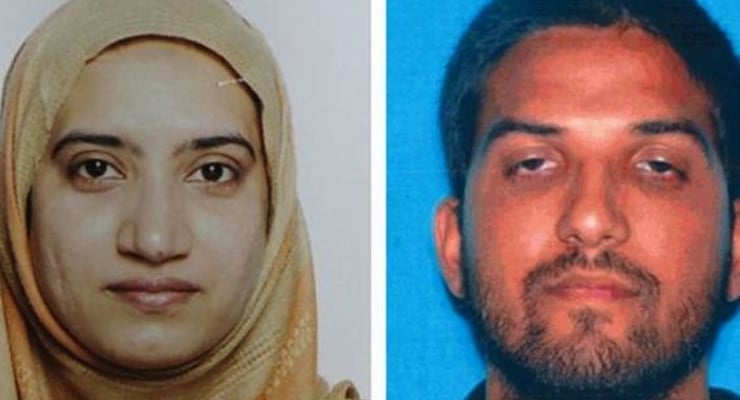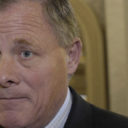

Syed Farook, 28, and Tashfeen Malik, 27, the suspects responsible for the San Bernardino Islamic terror attack. (Photos: AP/EPA)
FBI Director James Comey said on Wednesday the San Bernardino terrorists used “direct private messages” and there was “no evidence of posting on social media.” Director Comey made the remarks regarding the San Bernardino terrorists Syed Farook, 28, and Tashfeen Malik, 27, at a press conference after his speech at the NYPD Shield Conference in New York City.
“I see no indication that either of these killers came across our screen, tripped any trip wires,” said Director Comey, who also added he hadn’t seen evidence that “should have put them on our screen.” He pushed back on what he called “garbled” reports that indicated Tashfeen Malik and Syed Farook may have posted openly about their jihadist tendencies to social media accounts.
Farook, an American-born citizen, and his jihadist wife Malik, a Pakistani national who came to the U.S. on a K-1 visa, killed 14 and wounded 22 others on Dec. 2 at a Christmas party for county workers. The two married Islamic terrorists were killed by police shortly after the attack.
Comey was attempting to clarify the type of online communication Malik and Farook actually participated in because the Department of Homeland Security has come under fire for having a policy of not checking certain visa applicants social media accounts as part of the background check process. The White House dumped the blame for the policy on DHS Secretary Jeh Johnson, who apparently didn’t want to offend the privacy of applicants. But Comey Wednesday specifically stated the messages they exchanged were “not public postings.”
“I’m talking about the kinds of messages that billions, trillions are sent every day,” said Comey, who wouldn’t name the specific social media platform the Islamic terrorists used. “We don’t intercept the communications of Americans without predication.”
Comey also underscored how the San Bernardino terrorists used some products or services that were designed so not even the provider could access the communications. Other systems are secure and have email encryption when a message is sent, but also allow companies to read communications if they’re served with a court order. The private sector’s unwillingness to comply, however, is somewhat being misreported to the public. The administration has not even formerly asked technology companies to participate, according to several Silicon Valley executives we have spoken to at PPD.
“I think the conversation we have to have is, ‘what do consumers want?'” Comey said in a questionary statement. “And how do businesses want to conduct themselves?”






